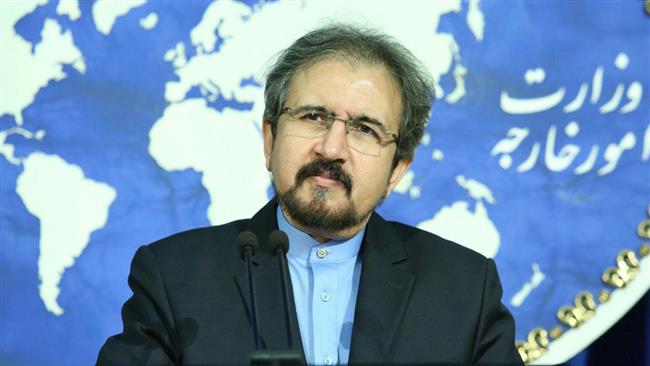US attempts to sway IAEA reporting on Iran futile: Foreign Ministry

EghtesadOnline: The United States’ potential attempts to sway the reporting of the United Nations' nuclear agency with regards to Iran will get nowhere, says the Iranian Foreign Ministry.
Foreign Ministry Spokesman Bahram Qassemi said during a regular press briefing on Monday that the US was making “futile” efforts if it was seeking to hinder the implementation of a nuclear deal between Iran and six other countries through contacts with the International Atomic Energy Agency (IAEA).
The IAEA monitors the technical aspects of the deal — officially titled the Joint Comprehensive Plan of Action (JCPOA) — and regularly reports Iranian compliance. It has consistently confirmed Iran’s compliance with its end of the bargain in several reports so far, according to PressTV.
The administration of US President Donald Trump has been skeptical of the deal, however, and while it has twice certified Iranian commitment in notifications to the US Congress, it has reportedly been seeking ways to potentially avoid future certification.
The US has also said that it is conducting a review of the deal to see whether continued sanctions relief — a US commitment under the agreement — is in the US’s national interest.
A US official said on August 9 that UN Ambassador Nikki Haley would be traveling to Vienna later this month to discuss Iran’s nuclear activities with IAEA officials as part of the review.
Qassemi, the Iranian Foreign Ministry spokesman, was asked about that trip during the briefing.
“The contacts of the US government or representatives with the IAEA are their own business. If they are making efforts to cause problems for the JCPOA, I think that is a futile and pointless effort, since the Agency will at the end of the day follow its responsibilities with precision, and future reports will [continue to] confirm this (Iranian compliance), as well,” Qassemi said.
Iran reached the deal with the US, the United Kingdom, France, China, Germany, and Russia in July 2015. Under the deal, Iran applied certain limits to its nuclear program in return for the termination of all nuclear-related sanctions on the country by the UN, the US, and the European Union.
Given the fact that the JCPOA is multilateral and that the other parties to the agreement continue to support it, Qassemi said, “it is believed that attempts by America’s representatives in making contacts with the Agency cannot be very effective.”
Without elaborating, he said problems could however be caused in certain areas.
In the face of the US administration’s hostile posture toward the JCPOA, Iran has taken up the task of safeguarding the deal. On Sunday night, Qassemi’s boss, Foreign Minister Mohammad Javad Zarif, said the number-one priority of his ministry would be to preserve the deal.
Qassemi echoed those remarks in his Monday briefing, saying a range of activities would have to be undertaken to sustain the JCPOA.
Relations with Saudi Arabia
Asked about relations with Saudi Arabia, which has severed diplomatic ties with Iran but is in contact with the Islamic Republic over this year’s Hajj pilgrimage, Qassemi said a set of actions had been taken by Iran toward the enhancement of ties.
“Relations are always two-way; they are not unilateral. We have taken the necessary steps,” he said, hoping that Saudi Arabia could do a better analysis of matters. “It is now Saudi Arabia’s turn to take more steps.”
In the meantime, he said, Iran would always be ready to help boost ties with regional countries.
Mediation between Tehran, Riyadh
Responding to a question about potential mediation by third countries between Iran and Saudi Arabia, Qassemi said Iran had never rejected mediation but added that Riyadh had to take more action for any enhancement of ties to materialize.
He said some parties, which he did not name, had come forward offering to mediate but had practically not been successful.
Qassemi seemed to put the blame on Saudi Arabia for the failure. “The Riyadh government has to learn the realities of the region and try harder,” he said.


